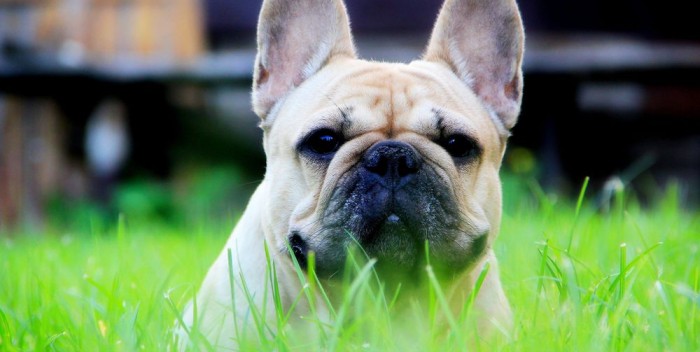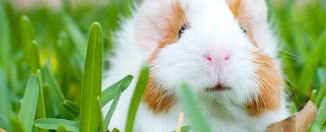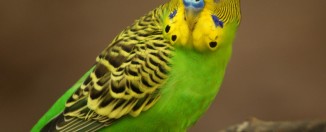French Bulldog: care, feeding, illness
The ancestors of the French Bulldogs are known for their hunting and fighting abilities. They were used in fierce dog fights, and a little later, small dogs were used to entertain the English nobility. They were sent to the bull-beiting, a bloody fight with the bulls. But this barbarism was soon banned, and only after a while the French were turned into calm, kind, domestic dogs.
Content
Features of the breed 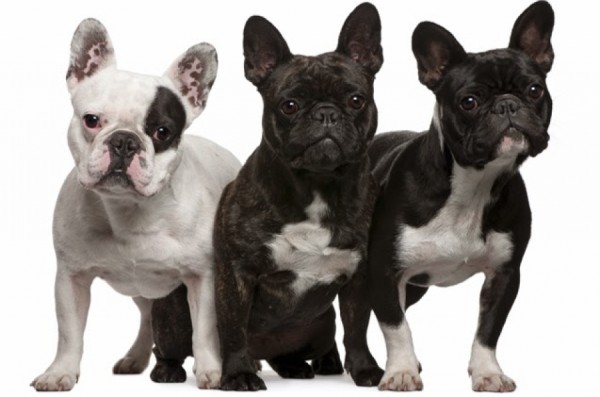
The standards of this breed have changed many times. The last standard is a bulldog weighing 8-14 kg and growing up to 35 cm at the withers. The color is very different: fawn, white-black, brindle, red, cream.
The dog is very strong, the front legs are shorter than the hind legs. Due to this feature, representatives of the breed are very fond of lying, stretching out their hind legs, many call the French frog dogs. The head is large, square, the eyes are bulging, which is why eye injuries often occur.
The breed is very smart and great for children.... They are kind, but they will stand up for their master. Bulldogs are not very fond of swimming because of the wide and heavy chest and head. When the dog is asleep, it may snore. Frenchies love to play, run, frolic.
Another feature of this breed is that the French rarely give birth themselves. Therefore, most often they are given a cesarean. Breeders monitor the puppies, their feeding. Another breed feature is that dogs rarely mate themselves. Artificial insemination is used for future offspring.
French Bulldog Care 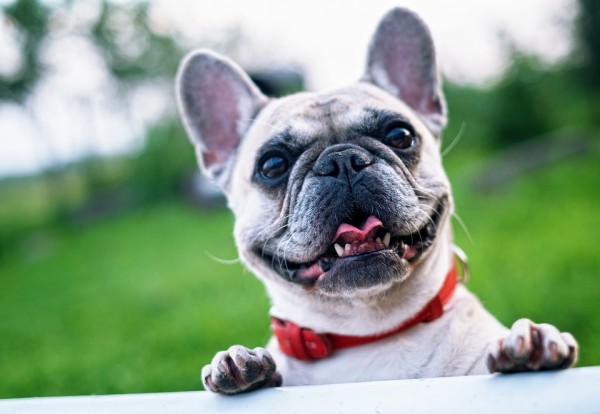
The French Bulldog is a warm-loving domestic dog. During winter festivities, it is better to shorten the walking time, or buy some warm things for your pet. On hot days, it is best to take your dog for a walk early in the morning or late in the evening when it gets chilly. Due to the short muzzle and nose, after a while, the bulldogs begin to breathe heavily.
Do not forget about training your pet. Dogs quite smart, so they learn commands quickly. The dog needs to be raised from puppyhood.
The pet should not be overfed, and you should not trust a small child to walk the dog. The breed is very strong, and can easily escape from a small owner.
The French need to clean their ears, wipe and bury their eyes, trim their claws. Bathe your dog every three months. The breed practically does not shed, but it is better to comb the coat daily with a massage brush.
An important factor is the processing of the pet. Deworming the dog every three months. Treatment for fleas all year round, and in the warm season, treatment for ticks. The puppy must be vaccinated against diseases and rabies at two and three months. An adult dog is vaccinated once a year.
Feeding the French Bulldog 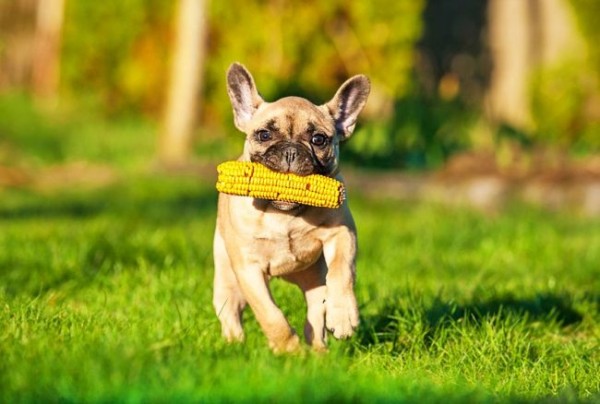
Little puppies feed should be at least 4 times a day, it is desirable that the food is always in the bowl. There is clean fresh water nearby. Up to 3 months puppy it is best to feed the food soaked in kefir, boiling water or yogurt, or rice porridge, you can add cottage cheese. Fermented milk products are required, they are high in calcium, which is good for bones. Dry food must be selected according to the age of the puppy.
For adult dogs, a couple of times a day, morning and evening, will suffice. For adult dogs, there are two options for feeding - dry food and natural. With natural food, you can give chopped meat, sea fish, rice, buckwheat porridge, parsley, lettuce, carrots, cabbage, cucumbers. As a treat and to strengthen teeth and gums, you can give a bone with cartilage and meat residues. In no case should you give your pet tubular bones. During training and education, small pieces of cheese or croutons from black bread can act as a delicacy.
If the dog eats natural food, then you should remember about mineral and vitamin supplements. You can also feed your pet fish oil.
It is strictly forbidden to feed the bulldogs: potatoes, legumes, sweet, chocolate, pork, herring, river fish, salty and spicy foods, baked goods, pasta, sugar, fried food.
Each dog is individual, so the portion should be selected according to different criteria. The dog should not overeat, but also malnourished. Watch how your pet eats, if he eats slowly and his stomach swells quickly, then the dog overeats and it is necessary to reduce the portion. If the dog eats everything quickly and at the same time licks the entire cup, then most likely the food is not enough for it and the portion needs to be slightly added.
Diseases of the French Bulldog 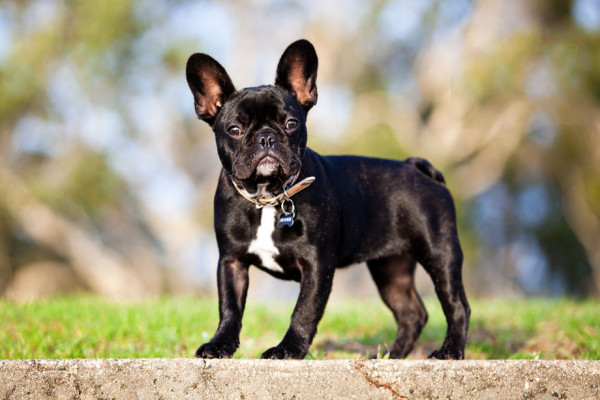
Like some other breeds, for example, yorkshire terriers or labradors, the French are prone to obesity with overeating and inactive lifestyles. Conjunctivitis is not uncommon in this breed. The eyelids swell, turn red, and purulent discharge from the eyes appears.
It is not uncommon for bulldogs to develop dermatitis, especially in the fold above the nose. Irritation, itching, redness, and pus may appear right away. Pads on the paws are also susceptible to dermatitis.
Due to the short muzzle, brachiocephalic breathing often begins in the French. Then the dog begins to be very noisy and difficult to breathe. Also, the French have a displacement of the vertebrae and intervertebral hernia. There are cases when, due to two adjacent hemivertebrae, curvature begins, severe back pain and atrophy of the hind limbs.
Allergic reactions in French Bulldogs are also not uncommon. Most often, allergies occur with an improper diet, less pollen, dust and insect bites. White Frenchmen, like white English Bulldogs, are themselves very allergenic. The wrong food and the animal combed its entire body. There are also times when white jackets are deaf from birth.
